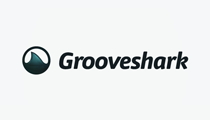This website uses cookies so that we can provide you with the best user experience possible. Cookie information is stored in your browser and performs functions such as recognising you when you return to our website and helping our team to understand which sections of the website you find most interesting and useful.
Business News Digital Grooveshark Timeline Top Stories
Grooveshark removed from Chromecast
By Chris Cooke | Published on Wednesday 10 September 2014
Plenty of eyebrows were raised in the music industry when it was announced last month that often controversial streaming music platform Grooveshark was now officially available for use on Google’s wifi-TV system Chromecast, given the issues that had previously surrounded the digital music company’s efforts to distribute its mobile app via Apple and Google’s proprietary stores. So it’s perhaps little surprise that the Grooveshark Chromecast app has now been withdrawn from the Play Store because of ‘terms of service’ issues.
Grooveshark’s rocky relationship with the music industry has been well documented. Although it has secured some licenses from music rights owners over the years, and did a deal with the biggest of the music publishers last summer, most of the wider sound recording catalogue remains unlicensed. But, because it allows users to upload MP3s to its platform, the labels who control that catalogue are obliged to monitor the Grooveshark servers and issue takedowns every time recordings they own appear on the site.
Grooveshark argues that, because it accepts and deals with those takedowns, it is operating within US copyright law, and given most interpretations of the Digital Millennium Copyright Act in the American courts, it’s probably right.
But the labels accuse Grooveshark of exploiting a loophole in American law, knowing that within minutes of unlicensed content being removed to comply with a takedown request, one of the firm’s users will have reuploaded it. And while Grooveshark routinely compares itself to Google’s YouTube, it hasn’t invested in a system like the video site’s ContentID which tries to make the takedown process easier and quicker.
Litigation is ongoing, the majors having sued Grooveshark several times, though the ongoing legal cases rely on technicalities where the digital firm arguably can’t rely on the protection provided by the DMCA. Meanwhile the record industry’s lobbyists are trying to get American law amended, so start-ups can’t build businesses around what the rights owners consider to be a loophole.
Concurrent to all this, and despite the fact the legal debates around Grooveshark are far from clear either way, the labels have put pressure on Apple and Google to not distribute official apps for use on their respective operating systems. Which is why the launch of Grooveshark on Chromecast was a surprise. And its subsequent withdrawal was not.
Though an annoyed Grooveshark does seemed surprised by the latest development, given they had seemingly worked closely with Google ahead of launch. Confirming its app had been removed from the Play store, the company said yesterday: “After a jointly approved press release from Grooveshark [launching the app], we were notified by Google [that] our app was suspended for Terms Of Service of compliance”.
According to TheNextWeb, the Recording Industry Association Of America’s intervention is behind the removal of the app, with the labels group insisting Grooveshark continues to infringe their copyrights. Noting that, Grooveshark said that it found it “interesting” that Google would rule its ‘Terms Of Service’ to be breached because of the RIAA’s copyright arguments, given that YouTube has similarly disputed the record industry’s interpretation of the DMCA (albeit while concurrently working to placate the labels).
Grooveshark continues to be available on all devices via its web apps, though the Chromecast development is another setback for the digital music start-up.






